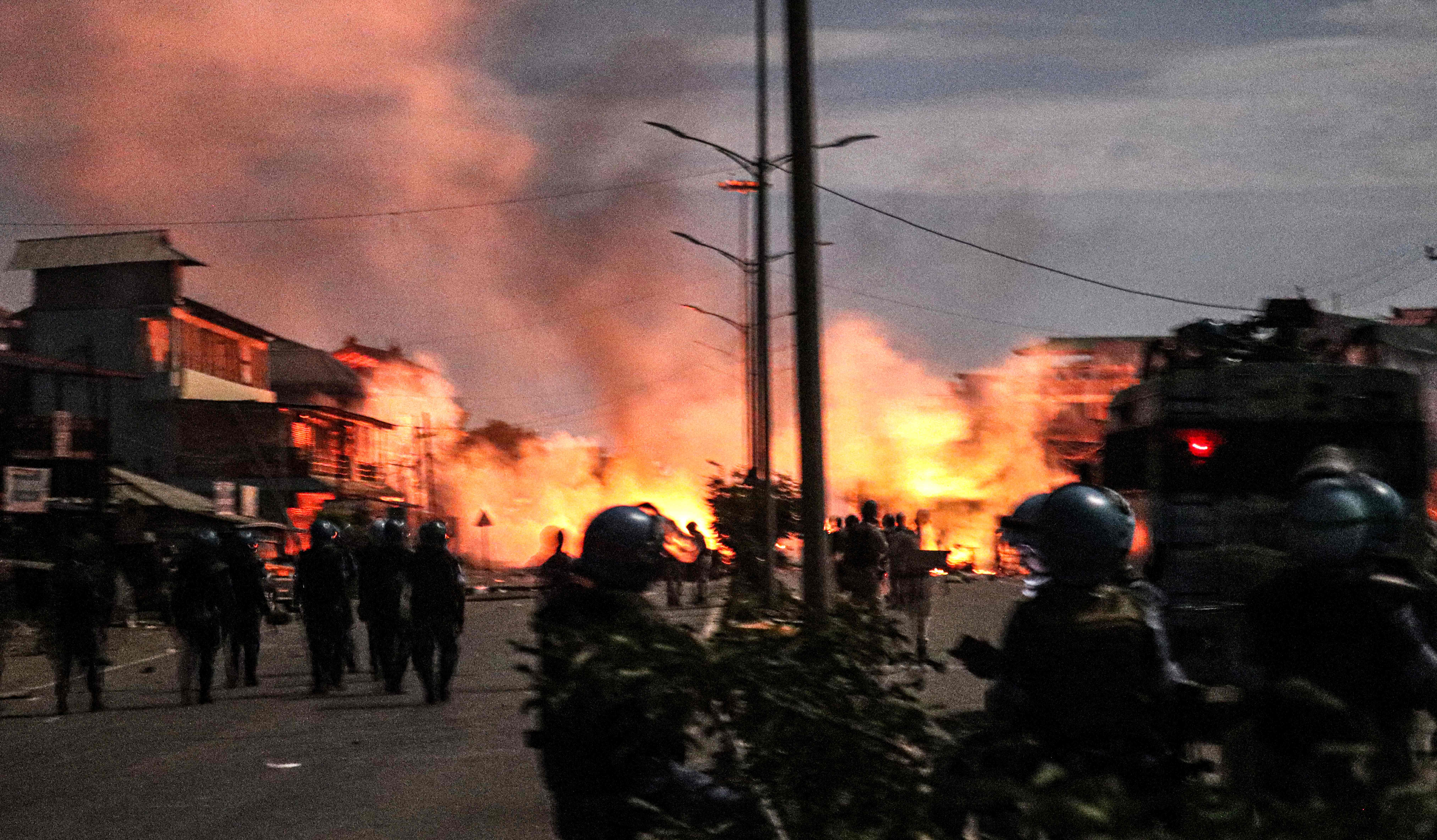India’s Manipur bans circulation of violent videos after footage of tribal man’s death sparks fresh outrage
Manipur also extends internet shutdown in state where people have gone without internet for more than five months

Your support helps us to tell the story
From reproductive rights to climate change to Big Tech, The Independent is on the ground when the story is developing. Whether it's investigating the financials of Elon Musk's pro-Trump PAC or producing our latest documentary, 'The A Word', which shines a light on the American women fighting for reproductive rights, we know how important it is to parse out the facts from the messaging.
At such a critical moment in US history, we need reporters on the ground. Your donation allows us to keep sending journalists to speak to both sides of the story.
The Independent is trusted by Americans across the entire political spectrum. And unlike many other quality news outlets, we choose not to lock Americans out of our reporting and analysis with paywalls. We believe quality journalism should be available to everyone, paid for by those who can afford it.
Your support makes all the difference.Sharing images and videos of “violent activities” has been banned in India’s Manipur after two graphic videos recently circulated on social media in the conflict-ridden northeastern state.
The order by Manipur’s state government on Wednesday comes shortly after violent and graphic visuals showed a man claimed to be from a minority community being burnt in a trench.
The northeastern state has seen clashes between the Meitei and Kuki communities since May that have brought it to the brink of civil war, and has suffered through an unprecedented internet blackout for more than five months now.
The order by the state government, which is led by prime minister Narendra Modi’s BJP party, said such photos or videos can rouse mobs and demonstrators as well as heighten law and order concerns.
“The state government views very seriously and with utmost sensitivity the reported spread of videos and pictures/images depicting violent activities like causing/inflicting harm/injury to body and/or damage, to public/private property etc through various social media platforms,” said the order.
The government said it will file cases against anybody found to be circulating images and videos of violence.
The state’s home department also said “anyone misusing technology for inciting violence/ hatred shall also be dealt with appropriately under relevant provisions of Information Technology Act and Rules and the Indian Penal Code [India’s criminal code]”.
A seven-second video that had gone viral last week on several WhatsApp groups in Manipur showed a seemingly immobile man wearing a black T-shirt and olive camouflage trousers being burnt.
The unverified video was circulated in Manipur even though the exact location of the incident remains unknown. It was also not clear if the man was alive when the assault took place. Police in the state have said the incident occurred in May.
Another disturbing – and unverified – video showed two youths being shot and then buried in a pit by a group of people. The identities of those in the video remain unclear as is the location of the incident.
In a separate order, government officials announced the extension of the five-month long internet shutdown in the state by five more days until 16 October. The order claimed the move is needed to “thwart activities by anti-national and anti-social elements”.
“...It has become necessary to take adequate measures to maintain law and order in public interest, by stopping the spread of disinformation and false rumours, through various social media platforms such as WhatsApp, Facebook, Instagram, Twitter etc on various electronic equipment like tablet, computer, mobile phone etc,” it said.
The internet blackout has become one of the longest continuing bans in India – and the longest this year.
Human rights organisations have decried the misuse of internet shutdowns by the administration.
Amnesty has said such shutdowns violate the human rights of Manipur’s citizens and “hinders them from receiving and imparting information and freely expressing their opinions, and to contact their loved ones”.
The first internet blackout hit Manipur on 3 May this year. The state government had initially suspended mobile data services in some districts and later suspended all internet services a day later.
The government had briefly lifted the ban for three days on 23 September.
The conflict in Manipur began with members of the Kuki tribal community protesting against a demand by the majority Meiteis for the expansion of quotas for minority groups in government jobs, as well as a loosening of rules around land purchases by different tribes.
Clashes in Manipur first erupted after a “Tribal Solidarity March” was called by the All Tribal Students’ Union of Manipur in the first week of May.
The march was organised in protest against the demand for the inclusion of the area’s majority Meitei community in the Scheduled Tribe (ST) category, following a 19 April Manipur High Court directive.
Under Indian law, some government jobs, college admissions and electoral seats – from village councils to parliament – are reserved for communities under the ST category as a form of affirmative action to tackle historical structural inequality and discrimination.
The deadly clashes have persisted despite the army’s presence in a state that has 3.2 million people living in the mountains on India’s border with Myanmar.
The state is now divided into segregated ethnic zones, and more than 60,000 people have fled the violence to packed relief camps.





Join our commenting forum
Join thought-provoking conversations, follow other Independent readers and see their replies
Comments